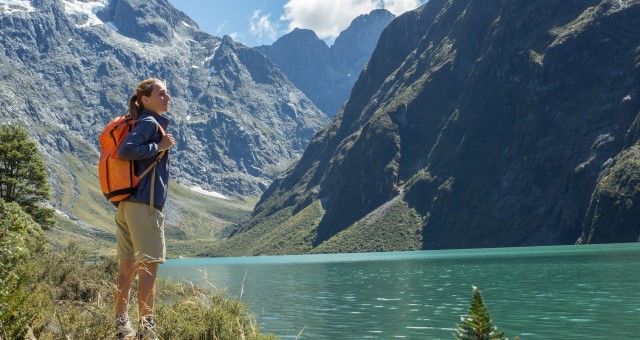A new COVID support payment for struggling business in New Zealand is not enough to combat the impact of closed borders on the country’s hotel and tourism businesses, according to industry bodies.
Businesses that can show a drop in revenue of 40% as a result of the shift to Phase 2 of the Government’s Omicron response on February 15, will be eligible for $4000 plus $400 per full-time employee (capped at 50 FTEs or $24,000) as part of the changes, while those that have availed of the Small Business Cashflow Loans Scheme will be able to draw down an additional $10,000 with an extended repayment period of five years, and the first two being interest free.
Hotel Council Aotearoa (HCA) Strategic Director, James Doolan, said the package prioritises businesses that have managed to rebuild revenues to near-normal levels over the last two years, and that many hotels and tourism businesses will not qualify for this reason.
“If earnings were terrible before 15 February and terrible afterwards, you might not qualify. That’s a bizarre outcome,” he said.
He believes support should be provided to any business that can show a 40% drop in income between the periods either side of February 15, or alternatively if they can show 50 per cent drop in income when compared with the same periods in 2019, before borders were closed.
“Adjusting the qualification criteria to acknowledge the ongoing impact of closed borders is the absolute minimum that Government should do for battered tourism businesses”, said Doolan.
Doolan, along with many other, is questioning why there hasn’t been targeted support for the industry.
“New Zealand has fought the COVID pandemic using a combination of border restrictions and domestic COVID settings, such as lockdowns, domestic borders and the traffic lights system,” he said.
“Why is Government still refusing to offer targeted support to worthy tourism businesses that are disproportionately affected by border settings? Hasn’t the border closure been a key part of our COVID response?
“Once again, Government has chosen not to support worthy businesses for whom the borders, and not domestic outbreaks, are the biggest problem”.
Hon Grant Robertson said it wasn’t feasible to offer sector specific packages.
“We looked closely at whether we could offer sector specific packages but the definition of who is in what sector, and the need for cashflow to be provided quickly meant that was not a feasible option to reach the most affected,” he said.
There are 21,000 hospitality venues in New Zealand, most of which are down more than 40% on revenue, according to Hospitality NZ. Chief Executive Julie White said that compared with the scale of the losses, the amount of money available is concerning.
“Right now, I have to say it looks like it will not be enough. Many will now close, or at best hibernate. Either way, it means job losses,” White said.
“The sector has compounded losses for two years and patronage been very low since the last lockdown. Many have exhausted all sources of private funds. Today they have certainty about the Government’s contribution. They can make their calculations and decide whether to continue.”
‘Act with urgency’: Industry calls for removal of self-isolation
Tourism Industry Aotearoa (TIA) said the changes announced on Monday will help smaller tourism businesses to survive the next six weeks but will have little benefit for larger businesses with high overheads.
TIA Communications Manager, Ann-Marie Johnson, said the tourism industry is not seeking “long-term government support”.
“The need for support will likely disappear when we can once again welcome international visitors with no self-isolation requirement,” Johnson said.
“We are pressing Government to act with urgency on the removal of self-isolation as soon as possible.”
HCA also raised concerns that there has been no further clarity on when isolation on arrival will be removed for international travellers.
“No high value international tourist will return to New Zealand if they are required to spend the first seven days staring at a hotel room wall”, said Doolan.
“If we want a good winter season, if we want to save Summer 2022/23, then our hotels, airlines, travel agents and inbound tourism operators need the green light to start marketing New Zealand without isolation on arrival. Our nearest competitor Australia is open for business already, so time is fast running out.”
An industry survey by TIA found that respondents expect their revenues will be down by 59% on average compared to the same period the previous year – half that of pre-COVID levels — and 66% classified the current operating environment as extremely difficult.
“Almost every day we are hearing of more tourism business closures,” Johnson said.
“Operators who have survived for the last two years are now facing their greatest challenges at a time when they expected to be looking forward to recovery.”
“Further loss of New Zealand’s tourism businesses runs the very real risk that the DNA of the tourism industry will be destroyed, severely limiting the industry’s ability to build back better with the high quality, regenerative tourism economy that we are all aspiring to.”
TIA has asked Tourism Minister Stuart Nash for an immediate package of support including relief from government fees and levies.

